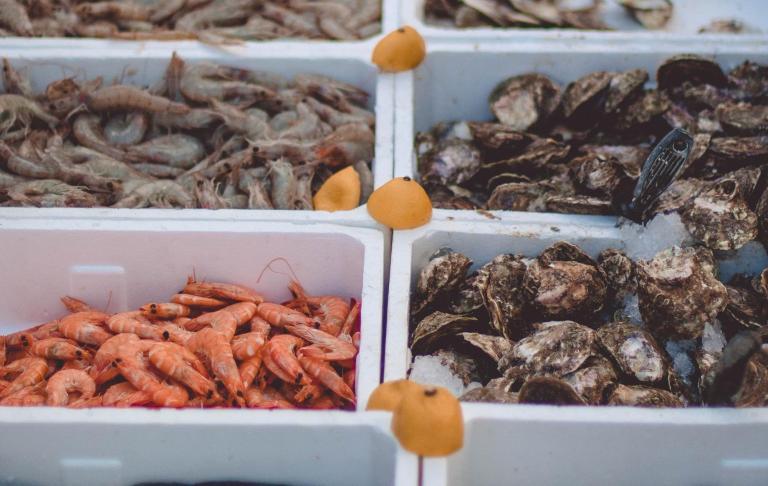The Horizon Europe proposal 'Sea to fork transparency and consumer engagement' aims to enhance transparency in the seafood chain, which is fundamental to create trust and improve acceptance by consumers. A wealth of information is already available on seafood supplies to guide consumers and retailers in their purchasing choices. However, knowing when and where fish are caught in the vastness of the ocean is challenging and requires innovative and cost-efficient approaches.
Additionally, farmed fish and shellfish grow in relatively controlled conditions, but producers do not always find the way to demonstrate this benefit. A lot of seafood is that is consumed has been processed, which adds downstream steps through logistics and retail before it reaches the consumer's table. Often, consumers are faced with fish and shellfish of vague origin with little information about fishing gear, feed, welfare issues, processing and transport details. This adds to significant pre-existing lack of trust in seafood, especially farmed seafood. Therefore, the level of awareness and demand among consumers and retailers is still far from sufficient to achieve a fully sustainable seafood sector and to efficiently promote consumption of the products with nutritional benefits and the lowest ecological and carbon footprint.
Research in this topic is expected to contribute to improving our understanding and developing new approaches and tools (e.g., new methods to trace origin, interoperable data technologies) to provide fully traceable records on how seafood is produced, processed, and transported. The environmental performance of seafood production and consumption needs to be based on a complete set of criteria that can be efficiently ranked, monitored, and integrated in transparent labelling of seafood in support of and complying with the current relevant legal framework and the future EU framework for food sustainability labelling. Issues related to biology, feeding, disease, pathology, environmental sustainability (including issues related to organic aquaculture) among others should be addressed. Innovations should lead to a change in the seafood consumption behaviour towards a preference for nutritious and sustainable seafood with a low ecological and carbon footprint.
Link with CMA Goals:
Goal I: Healthy marine and coastal ecosystems
/ Priority 1: Ensure the protection and sustainability of the marine ecosystem
Proposals should significantly increase the visibility of sustainably fished or farmed seafood and the engagement of consumers with these products through improved monitoring approaches, analytical methods and communication and marketing strategies, and the development and optimization of web-based and digital tools. Traceability should be ensured. Moreover, the tool can show information on the seafood species life cycle, nutritional values and the fishing or production and processing methods. [Please follow the link below for additional information and call conditions].

